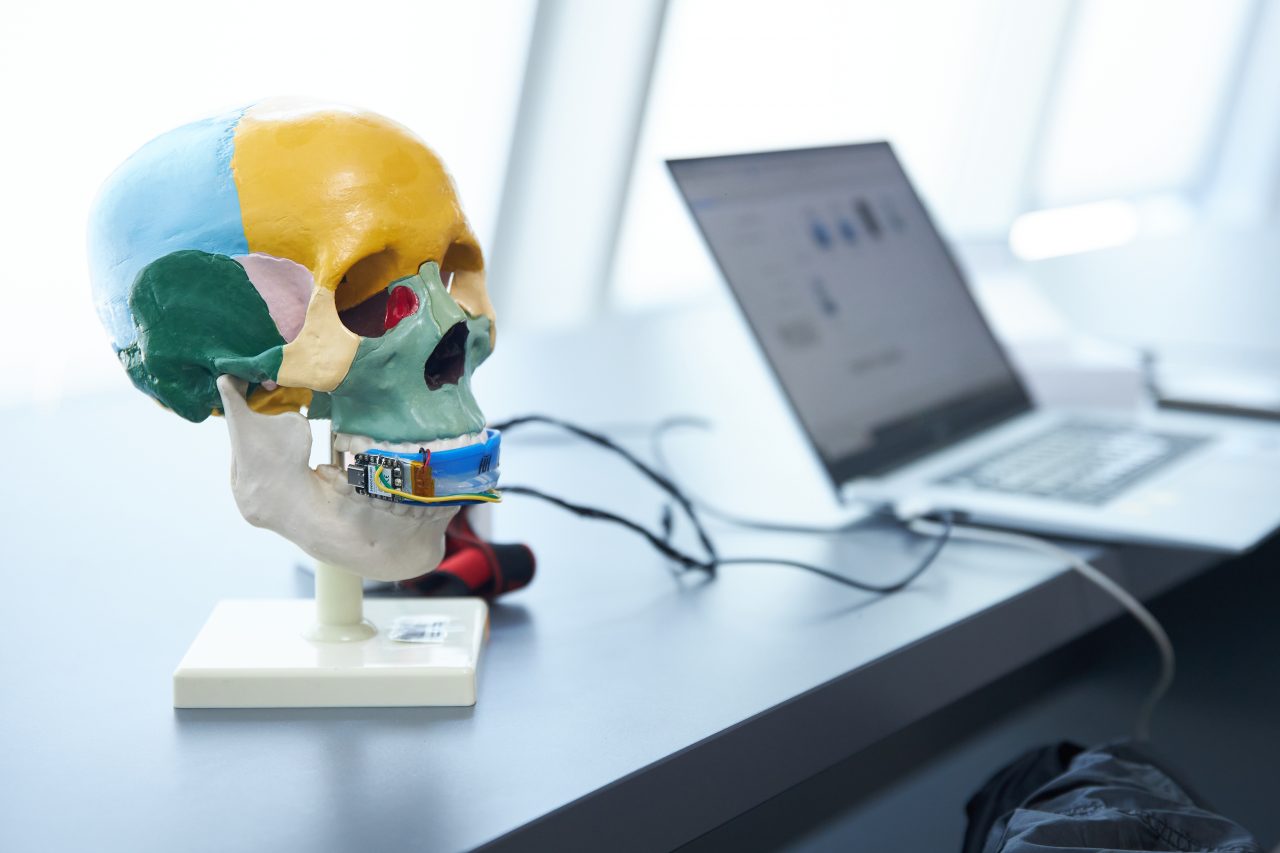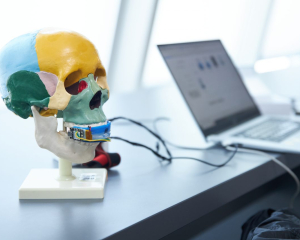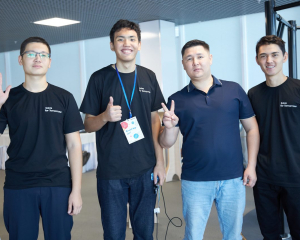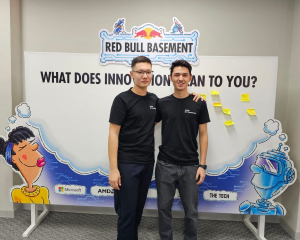INNOVATIVE PRODUCT BY KAZAKHSTANI SCHOOLCHILDREN

10.12.2024
High school students from Taraz prove that ambitious ideas can revolutionize medicine. Imagine: a team of teenagers from an afterschool club is developing a unique prosthetic device that can help a paralyzed person control a wheelchair and use a phone or laptop without much effort.
Kanat Tazhikhan, a high school student, told how he made this a reality and won international startup competitions sponsored by Samsung Electronics and Red Bull.
In the 7th grade, I got interested in robotics. I was fascinated by the ability to create something valuable and important with my own hands from scratch. That’s why I came to the afterschool club, where I started to learn the basics of programming. But all the plans were ruined by the pandemic. After a couple of weeks the club closed and the whole world took a pause.
During quarantine I didn’t want to sit idly by, so I decided to learn about at least some robotics basics on my own. I ordered electronic circuit boards and equipment I needed, plugged in my old laptop and delved into the world of robotics. YouTube was my teacher, and forums and online courses were my mentors. It was an exciting time of self-development, during which I gained a deeper understanding of how real devices work.
First Projects, Milestones and Exploring AI
When the quarantine was over and life went back to normal, I realized that I could do something more. In 9th grade, I developed my first practical project. It was about improving the efficiency of solar panels. I came up with a system for finding deficiencies and fixing them, which could improve the productivity of the panels. This project not only deepened my understanding of how it works but also served as a catalyst for further growth. I won several competitions, received a grant from the ministry and only then did I start to realize that my path in robotics could be something more.
Over time, I realized that for big projects I needed a team that shared my interests. That’s how I met Kaldybai Baryskhan. Together we developed a waste sorting system using artificial intelligence. The project was a success and received high praise from a number of experts. We decided to take it to Solve for Tomorrow by Samsung Electronics. Participating in this prestigious national startup competition was my longtime dream. Unfortunately, we failed to qualify in 2023. However, instead of feeling frustrated, we took this experience as a motivation.
Umit Project: Innovations for People with Disabilities
We decided to put our efforts into a social project. The trigger was a visit to a center for people with disabilities, where we saw the everyday problems they face. For example, it was hard for them to take books from the top shelves, and even such a simple task as moving around was a real challenge.
Then we thought about creating an exoskeleton that would help people with disabilities to move around. At that time, I started watching videos with Stephen Hawking and studying statistics and resources on the subject. We realized that digital technologies could be the solution. We developed the idea of a voice-driven wheelchair control system, and this was a true breakthrough. We named the project “Umit” and set out to conquer Solve for Tomorrow — 2024. This time we were lucky, making it to the semi-finals!
Umit resulted not only from our creativity, but also from a deep analysis of the needs of people with disabilities. We conducted a CustDev study to identify customer needs and realized that joysticks are not always suitable for controlling wheelchairs, because paralyzed people have difficulties using them.
This is when we shifted our focus to human language. We thought it would be the joystick we needed. The solution came as a prosthetic device to be placed in the mouth, able to function via Bluetooth and Wi-Fi. It was equipped with special sensors and a gyroscope.
The implementation process was complicated. We had to reflash the software all the time, so that the prosthesis could be adapted to several devices at the same time. A major problem was handling expensive microchips. We were always afraid that they might burn out because they were not properly protected against moisture. But despite all the challenges, we never lost our optimism.
In the end of the day we decided not to try to encompass all the options and to focus on the laptop control only. After all, the main task was to show the capabilities of the product. With this approach we could successfully present a model of the prosthesis in the competition finals. Samsung Electronics awarded us the thrid place and a one million tenge grant. The victory gave us new energy and resources to finalize the project.
New Challenges and Horizons
However, after our success in the competition, new challenges arose. Some team members suggested that we abandon the project and split the prize money. They felt that we had already built our portfolios and had to start preparing for university admission. But I wasn’t interested in preparing for university at all. All my thoughts were focused on the project, as I had poured my heart into it and saw its great potential. So, I managed to convince the team to keep going.
We applied for the next international competition, Red Bull Basement. Here we were head and shoulders above our competitors, all thanks to the experience from Solve for Tomorrow. We passed all the stages and became winners, earning a unique opportunity to go to Tokyo for the world finals.
We have no intention to stop here. We are confident that Umit Project has enormous potential and can change the lives of hundreds of thousands of people around the world. We are grateful to Solve for Tomorrow, which became a significant milestone for us. Moreover, mentors from Samsung Electronics continue to support us and are now helping us prepare for the decisive stage of the Red Bull competition in Japan’s capital. This is just the beginning of our journey, and we are ready to move forward to make the world better and more accessible for everyone.
Solve for Tomorrow is a factory of future IT professionals. Every year, the competition brings together thousands of high school students from across Kazakhstan. Here they present their solutions to pressing social issues through science, technology, engineering and mathematics (STEM). The prize fund for Solve for Tomorrow exceeds 10 million tenge.
This social project has been implemented in Kazakhstan for four years under the leadership of Samsung Electronics. Its partner, the AYALA charity foundation, provides general coordination for the project, handles administrative matters and facilitates communication between teams and mentors.
If you want to be one of the visionaries, join us! Learn more about the competition on the official website: solvefortomorrow.kz


